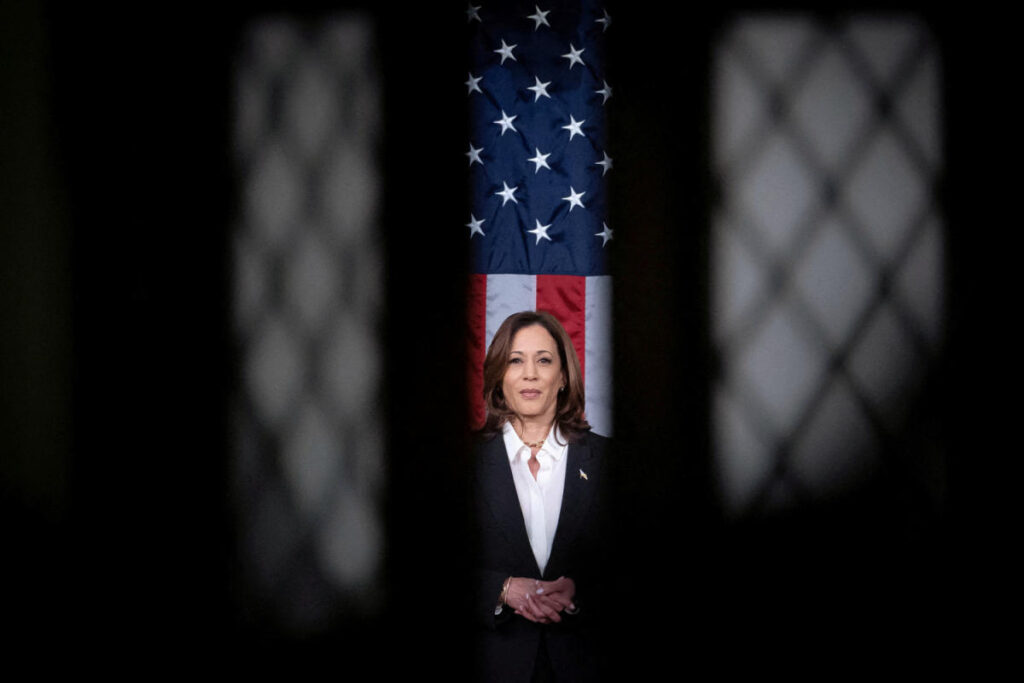Fresh from a significant setback in the wake of Donald Trump’s resurgence in American politics, Vice President Kamala Harris is poised to play a pivotal role in the Senate as Democrats aim to advance a multitude of judicial confirmations before a new Republican-controlled Congress takes office. As President Joe Biden emphasizes the urgency of moving forward with judicial appointments—a priority for his administration—Harris’s capacity as Senate President may be vital. With Biden yearning to surpass the 234 judicial positions occupied by Trump during his presidency, every vote counts, particularly in a Senate where the Democratic majority is perilously slim.
Harris has already established herself as a crucial figure in the Senate throughout Biden’s term, having recorded the highest number of tie-breaking votes for any vice president in history. This unique constitutional authority grants her a significant position during such a politically charged time. As Biden and Senate Majority Leader Chuck Schumer strategize on the judicial agenda, Harris’s potential involvement in upcoming votes has emerged as a key topic of discussion. The urgency of these confirmations was underscored in a recent lunch meeting between Harris and Biden, where they expressed mutual determination to tackle outstanding judicial matters before Biden transitions out of office.
With Harris preparing for a planned respite in Hawaii, the timeline for Senate confirmations is pressing, with voting expected in December. Initially planning to leave earlier, she postponed her trip to ensure her availability for critical votes on judicial nominations. This last-minute adjustment reflects the commitment of Harris and her team to maximize Democratic efficacy, emphasizing that they anticipate significant challenges ahead as they engage in fierce battles over judicial nominees once the Senate reconvenes.
Senator Elizabeth Warren has publicly confirmed that Harris would be available to cast tie-breaking votes if necessary, echoing the sentiment shared among Democrats that the primary goal is to fill all judicial nominations possible before the Senate flips control. Schumer has voiced a commitment to utilizing the lame-duck session—historically a time when departing politicians attempt to solidify their legacies through last-minute measures—to push through as many judicial confirmations as feasible, aiming to outmaneuver any potential Republican obstruction.
Trump has taken issue with these maneuvers, calling on Republican senators to block any judicial confirmations as the Democrats seek to “stack the courts.” However, the likelihood of stopping the process remains low given the Democratic majority until January. While Republicans may attempt to slow the proceedings, Democrats only need a simple majority to secure confirmations, reminiscent of the approach taken by GOP lawmakers during their 2020 lame-duck period when they advanced numerous Trump-nominated judges.
The ongoing clashes over judicial nominations reached a critical point recently, highlighted by the confirmation of a judge to the 11th Circuit Court of Appeals, as Schumer kept the Senate in session for an arduous voting process. If the pending nominations are successful, Biden could approach or even surpass the 223 judges confirmed during his presidency, challenging Trump’s count of 234. Although some Democratic officials hesitate to commit to surpassing Trump’s numbers outright, the focus remains on ensuring that competent judges fill the benches, with the potential of exceeding Trump’s final tally a tangible goal depending on forthcoming decisions and strategic movements by the Senate Democrats.
As the Biden administration remains tight-lipped about future judicial nominations, particularly in Republican-dominated areas where cooperation may be necessary, the dynamic in the Senate continues to evolve. Meanwhile, Harris’s readiness to step in as a tie-breaking vote remains a beacon of hope for Senate Democrats navigating this politically treacherous terrain. While there is apprehension surrounding the possibility of needing her vote, the possibility of her engagement offers a degree of assurance amid the fierce legislative struggles anticipated in the coming weeks. The discussions within Harris’s team, coupled with the visible determination among Senate Democrats, indicate a unified front as they brace for the critical legislative battles ahead.

